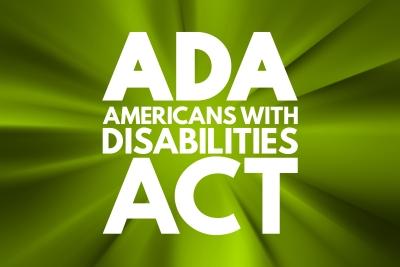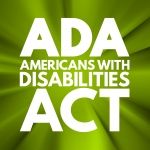Under the Americans with Disabilities Act (ADA), employers are required to make "reasonable accommodations" to the known physical or mental limitations of an employee who is otherwise qualified unless the accommodation creates an undue hardship for the employer. The ADA applies to employers with 15 or more employees.
The U.S. Equal Employment Opportunities Commission (EEOC) issued guidance back in 2016 on the use of leave as a reasonable accommodation under the ADA. The guidance is particularly notable for employers, in that the EEOC states the "purpose of the ADA’s reasonable accommodation obligation is to require employers to change the way things are customarily done to enable employees with disabilities to work."
The guidance provides four areas of insight for employers when assessing whether to grant leave, either paid or unpaid, as a reasonable accommodation:
1. Whether the leave would cause an undue hardship for the employer. In determining whether a leave creates an undue hardship, the employer may consider the amount, length and frequency of leave being requested, whether the leave is predictable or unpredictable, and the impact of the leave on other coworkers and on the employer's ability to serve its customers.
Further it is permissible for an employer to assess, while the employee is still out on FMLA leave, whether extending a leave following the employee's FMLA leave would create an undue hardship. In other words, the employer does not need to wait until the employee's FLMA leave has ended to begin discussions about whether an extended leave is a reasonable accommodation.
2. The interactive process is critical. The interactive process should be used in all situations involving a request for a reasonable accommodation, and it is even more critical in the case of a leave. The process includes discussing the need for a leave in detail with the employee on a one-to-one basis, with multiple discussions as necessary, to enable the employee and employer to determine whether a leave is a reasonable accommodation in the immediate situation or if it will result in undue hardship for the employer. These discussions should be thoroughly documented.
3. Employers may obtain documentation from medical providers. To determine if a leave is a reasonable accommodation, the employer may obtain information from the employee's health care provider (with the employee's permission) to confirm or to elaborate on information that the employee has provided. Employers may also ask the health care provider to respond to questions designed to enable the employer to understand the need for leave, the amount and type of leave required, and whether reasonable accommodations other than, or in addition to, leave may be effective for the employee.
Information from the health care provider may also assist the employer in determining whether the leave would pose an undue hardship. An employee requesting leave as a reasonable accommodation should respond to questions from the employer as part of the interactive process and work with his or her health care provider to obtain requested medical documentation as quickly as possible.
4. “1OO% healed” policies violate the ADA. Many employers have 100% healed policies that require an employee to have no medical restrictions before returning to work, with the intention of ensuring that the employee can perform the essential functions of the job. However, the EEOC's guidance clearly states that these blanket types of policies violate the ADA. The appropriate standard is to assess whether the employee is able to perform the essential functions of the job as of the end of the requested leave period that is found to be a reasonable accommodation, not during the time the employee is on disability-related leave.
The ADA is a complex law, with many potential pitfalls for employers. Need help navigating your way through the difficult situations of employee leaves and other requests for reasonable accommodations? MRA’s HR Hotline Advisors are here to assist!



